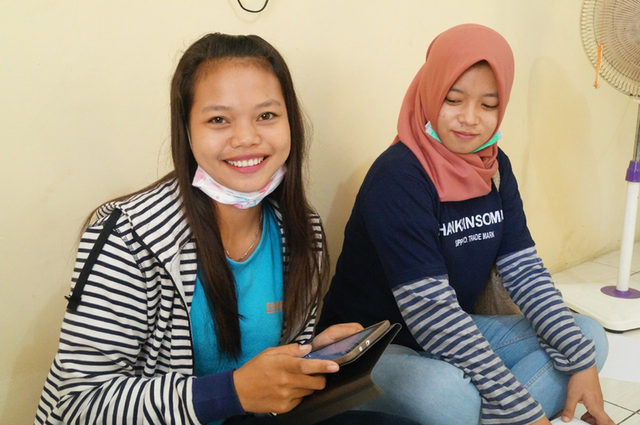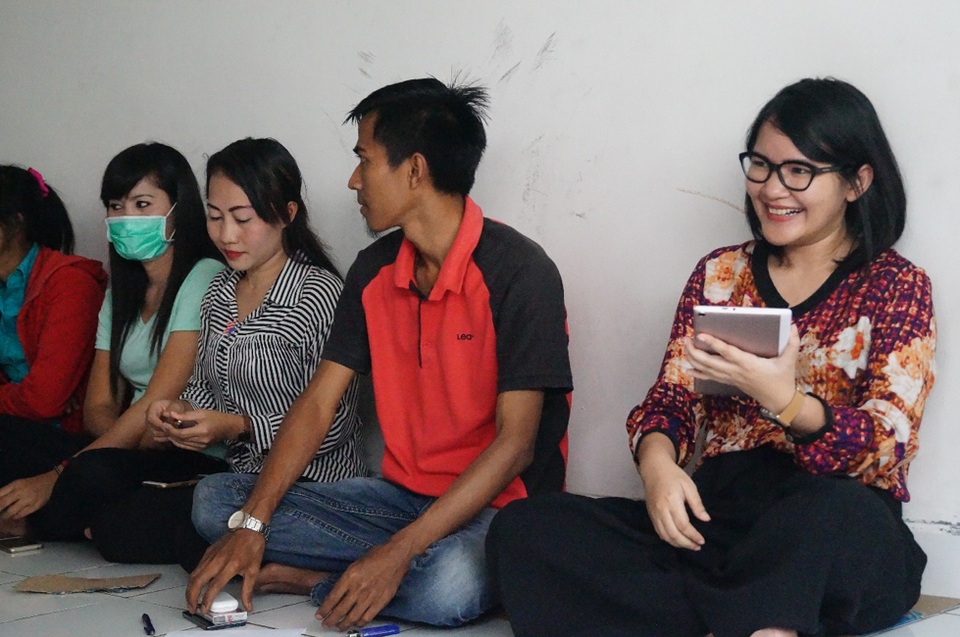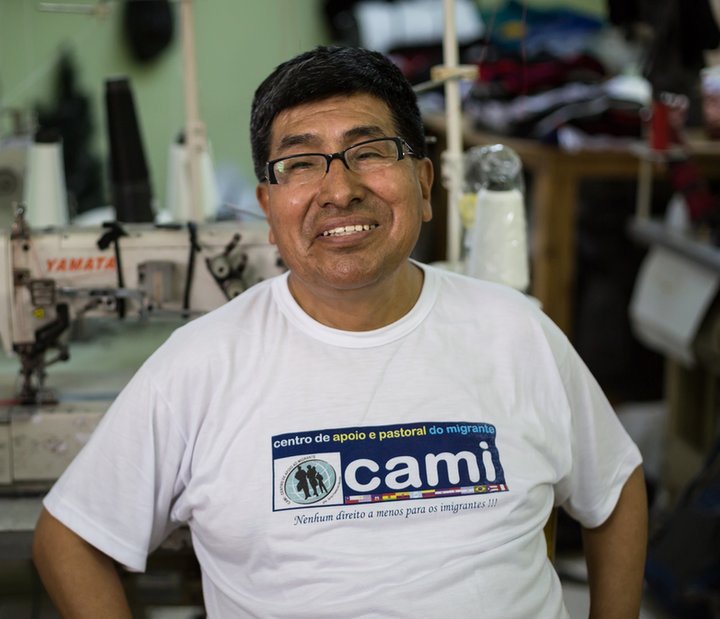Breakthrough Moments: Worker-powered transparency drives improved conditions
We are partnering with Wage Indicator to get data into the hands of those who have the most to gain from better transparency: the workers.

Compliance with minimum wages and labour laws in the Indonesian apparel industry is a major problem. A recent International Labour Organization (ILO) Better Work Indonesia report revealed that 37% of factories in the Greater Jakarta region were not compliant with minimum wage payments and 75% do not adequately compensate overtime.
That’s why we are supporting Wage Indicator to adapt their existing minimum wage and labour law surveys to Indonesia. In 2018, they built the transparency pages of Gajimu Garment, a website and app-based platform that encourages workers to give and receive information about working conditions and wages. The aim was to raise awareness of non-compliance issues by publicly disclosing this information and strengthen worker negotiations with factory management, ultimately leading to improved working conditions.

Available in Bahasa Indonesian and English, Gajimu Garment gives workers the opportunity to enter wages and working conditions data and instantly check these against minimum wage rates and labour laws. Workers answer questions like “Does the employer provide written employment contracts?”, “Does the employer provide a weekly rest day?”, “Are wages paid on a regular basis?” and “Does the employer employ children younger than 15?”, with the answers submitted in a way that can be quantified and compared.
With the results, workers can then see how their factory is better or worse compared with others on the website. And factories can see how they compare in terms of key issues like wages, working hours and freedom of association.
Since the Gajimu Garment initiative began in 2017
120
GARMENT
FACTORIES
have been surveyed. The latest results can be found on the Gajimu.com website.
Tangible improvements have been made in 17 factories, which together employ 31,500 workers.
6500
workers participated in improving transparency of their factory conditions in Indonesia
17
of the 120 factories surveyed have shown improvements in their working conditions.
127
companies have now made a commitment to ensure workers do not pay recruitment fees for their job
The breakthrough moment came when Wage Indicator received encouraging early signs that their innovative new data-gathering mechanism was working.
Since the initiative started, 6,500 workers have been surveyed, evaluating working conditions in 120 factories. This has led to tangible improvements in 17 factories, which together employ 31,500 workers. Improvements include: strengthened collective bargaining agreements, contract workers given the option to become permanent employees, overtime becoming unforced and compensated, new unions taking shape in factories that previously had none, and workers enrolling onto health insurance and pension plans.
Gajimu Garment has shown the crucial role workers can play in improving their own conditions and in creating a culture of worker-driven transparency. After all, the people who make our clothes should have the power to effect change for themselves.
It feels nice to have somebody who cares about the worker’s situation in our factories. I feel like I learnt a lot about labour law while doing the Gajimu survey, and I can immediately see the results. Let’s hope that by doing this survey, employers can hear our voice.
Erni | worker from PT. Indonesia Wacoal

Alina & Cami
To make improvements to the fashion industry in Brazil, we need to carefully consider the political and social context and boost the ability of regional organisations to do their work in this climate.
We tailored ongoing support for both grassroots and larger-scale organizations, including Alina and CAMI, to consolidate their governance and structures, and help them develop better processes appropriate for the system they are operating in. The first evaluation of this work will be published in 2019, and signs are that the focus on core institutional support has been able to build these crucial organisations’ leadership capacity, internal processes and fundraising skills.